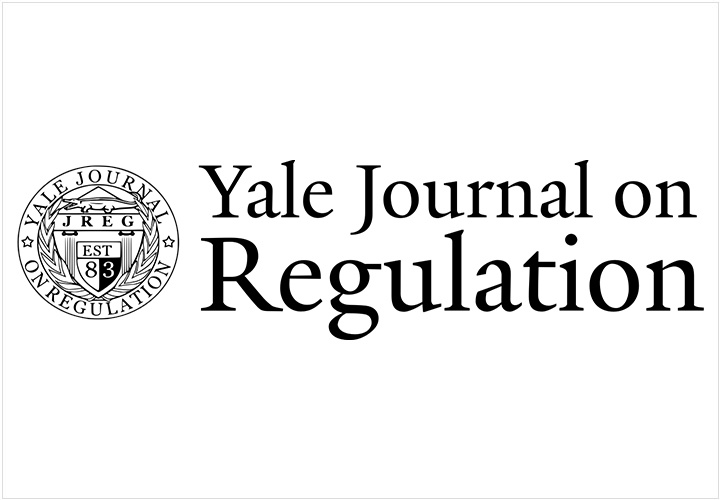New Yale Journal Provides Crucial Insights to Digital Market Regulation

This week marks the beginning of one of the biggest tech monopoly trials of the 21st century: the U.S. Justice Department is arguing that Google abused its power as a monopoly to dominate the search engine business. Just last week, the European Commission designated Google, Apple, Microsoft, Amazon, Meta and Bytedance as “gatekeepers”—marking them large, systemic online platforms, and therefore subject to a set of new regulations.
At a time when nations are acting against the potential harms presented by digital platforms, researchers at Yale are working to advance our understanding of how these platforms work and provide practical insights for policy. Yale Professor Fiona Scott Morton launched an extensive research project two years ago that has culminated in a special issue in Yale’s Journal on Regulation (JREG). This new issue includes articles that establish the economic and policy rationales for many different types of digital market regulation.
Through the Digital Economy Project at Yale’s Tobin Center for Economic Policy and in partnership with Toulouse School of Economics, Professor Scott Morton coordinated a panel of expert economists and academics to author each piece. The articles include topics such as consumer protection, competition policy, and how to address network effects in digital markets.
“These papers provide timely insights for policymakers and researchers grappling with how best to regulate the digital platforms that dominate our markets.”
– Gene Kimmelman, Tobin Center Senior Policy Fellow
This collaborative effort focused on developing a solid analytical framework for regulating dominant firms in the digital marketplace. Each policy paper focused on a critical challenge facing regulators, including:
- Consumer Protection for Online Markets and Large Digital Platforms: This paper discusses the economic rationale for consumer protection and highlights key differences between digital and offline markets.
- More Competitive Search Through Regulation: This paper identifies regulations that could be used to make the search market more competitive and reduce the harms flowing from Google’s current monopoly position.
- Fairness and Contestability in the Digital Markets Act: This paper uses economic theory to explores how fairness and contestability should be understood in implementation of the Digital Markets Act. It also traces how economic theory and innovation map to the goals, interpretation, and enforcement of the law.
- Equitable Interoperability: The “Supertool” of Digital Platform Governance: this paper focuses on creating competition in digital platform markets where network effects are strong. It also explains how interoperability regulation can stimulate competition in a market even if competition for the market is no longer likely.
- Market Design for Personal Data: This paper explores the conditions necessary to make markets for data that offer users choice, compensation, and competition. These markets aim to address the concerns around personal data collection that include competition, efficiency, innovation, privacy, and the distribution of the surplus generated in digital markets.
The efforts of this dedicated team of economic experts, in partnership with the Tobin Center’s Digital Economy Project, aim to push the frontier of regulatory economics research to address the questions and issues raised by the rise of large digital platforms. This new collection of papers offers a set of economic and policy principles to support digital market regulators as they work to ensure that platforms behave in a fair way online, and consumers are protected.